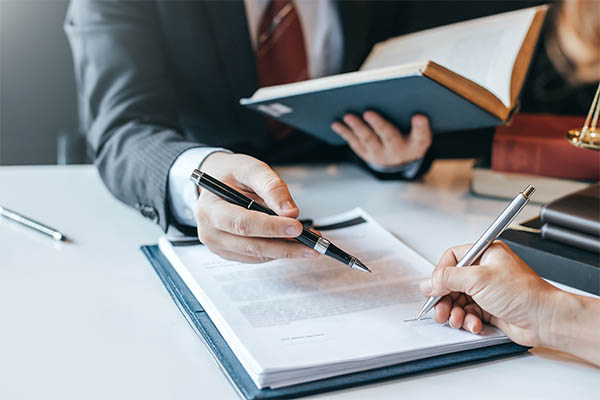Operating as a sole proprietor offers simplicity and flexibility, but it also comes with one significant drawback: there’s no legal separation between you and your business. If your business is struggling with debt, creditors can pursue not just business assets but also your personal property. In such cases, filing for bankruptcy may be the best way to regain control and protect your future.
If you’re a sole proprietor considering bankruptcy, here’s what you need to know to make an informed decision.
1. What Makes Sole Proprietorships Unique?
A sole proprietorship is the simplest form of business structure, where the business and the owner are legally the same entity. While this allows for easy setup and full control, it also means:
- Unlimited personal liability: You’re personally responsible for all business debts and obligations.
- No distinction between personal and business assets: Both can be used to repay creditors, making personal bankruptcy an option if the business cannot meet its financial obligations.
Unlike corporations or LLCs, which provide a legal shield between personal and business finances, sole proprietors have direct exposure to all debts incurred in the business’s name.
2. Bankruptcy Options for Sole Proprietors
Sole proprietors can choose from two primary types of bankruptcy: Chapter 7 and Chapter 13. Understanding how each works is essential for determining the best path forward.
Chapter 7 Bankruptcy: Liquidation
- How it works: Chapter 7 involves selling (liquidating) non-exempt assets to repay creditors. Once the assets are sold and the proceeds are distributed, most remaining debts are discharged, meaning you’re no longer responsible for repaying them.
- Who it’s best for: Sole proprietors with little to no income, significant debt, and no realistic way to repay creditors.
- Key considerations:
- Both business and personal debts are included.
- Some personal assets may be exempt from liquidation under state or federal exemption laws, such as your home, car, or retirement accounts.
- Your business may need to close if its assets are liquidated.
Chapter 13 Bankruptcy: Repayment Plan
- How it works: Chapter 13 allows you to keep your assets and create a repayment plan to pay off debts over three to five years. Any remaining eligible debt is discharged at the end of the repayment period.
- Who it’s best for: Sole proprietors with a steady income who want to keep their business running while repaying debts over time.
- Key considerations:
- You must meet income requirements and have a feasible repayment plan.
- Priority debts, such as taxes and secured loans, must be paid in full through the plan.
- Chapter 13 may allow you to renegotiate some debt terms, such as lowering interest rates.
3. Personal and Business Debts in Bankruptcy
For sole proprietors, there’s no distinction between personal and business debts in bankruptcy. Both types of debt are treated as part of your bankruptcy filing, which can be an advantage in simplifying the process. Here’s how different debts are handled:
- Secured debts (e.g., equipment loans, mortgages): Creditors may repossess or foreclose on the collateral unless you reaffirm the debt or catch up on payments through a Chapter 13 plan.
- Unsecured debts (e.g., credit cards, medical bills): These debts are typically discharged in Chapter 7 or included in a Chapter 13 repayment plan.
- Tax debts: Certain tax obligations may not be dischargeable, but they can be addressed in Chapter 13.
4. Exemptions: What Can You Keep?
Bankruptcy exemptions protect certain assets from liquidation, allowing you to keep essential property. Exemption laws vary by state, but common exemptions include:
- Primary residence (homestead exemption): Protects equity in your home up to a certain value.
- Personal vehicle: Often exempt up to a specific dollar amount.
- Tools of the trade: Equipment or tools necessary for your business.
- Retirement accounts: Most 401(k)s and IRAs are fully protected.
It’s crucial to understand Kentucky’s exemption rules or consult with an experienced bankruptcy attorney to maximize the assets you can retain.
5. Pros and Cons of Filing for Bankruptcy as a Sole Proprietor
Pros
- Discharge of debts: Eliminates most unsecured debts, providing a fresh start.
- Stops creditor actions: Bankruptcy triggers an automatic stay, halting lawsuits, wage garnishments, and collection efforts.
- Opportunity to rebuild: Allows you to reorganize your finances and potentially save your business under Chapter 13.
Cons
- Risk of losing assets: Non-exempt assets may be sold in Chapter 7 bankruptcy.
- Credit impact: Bankruptcy remains on your credit report for 7-10 years, potentially affecting your ability to secure future loans.
- Business closure risk: If your business has significant assets, Chapter 7 may require you to close and liquidate them.
6. Alternatives to Bankruptcy
Before filing for bankruptcy, consider exploring alternatives such as:
- Debt negotiation: Work with creditors to settle or reduce debts.
- Loan refinancing: Consolidate debts into a single loan with more favorable terms.
- Business restructuring: Reduce costs, renegotiate contracts, or focus on profitable areas of your business.
- Assignment for the Benefit of Creditors (ABC): Transfer business assets to a third party for liquidation, with proceeds distributed to creditors.
These options may help you resolve financial issues without the need for bankruptcy.
7. The Importance of Professional Guidance
Bankruptcy as a sole proprietor is complex and requires a thorough understanding of your financial situation and the law. An experienced bankruptcy attorney can:
- Help you determine which type of bankruptcy (if any) is right for your circumstances.
- Guide you through the process of filing and protecting your assets.
- Assist in negotiating with creditors or exploring alternative solutions.
Take Control of Your Financial Future
If your sole proprietorship is struggling with overwhelming debt, bankruptcy may provide the relief and fresh start you need. However, it’s essential to approach the process with a clear understanding of your options and how they impact your personal and business finances.
At Dennery Law, we specialize in helping sole proprietors in Central Kentucky navigate bankruptcy and debt relief. Whether you’re considering Chapter 7, Chapter 13, or exploring alternatives, our experienced team is here to provide personalized guidance and support every step of the way.
Contact Dennery Law today for a free consultation, and let us help you regain control of your finances and build a brighter future.

